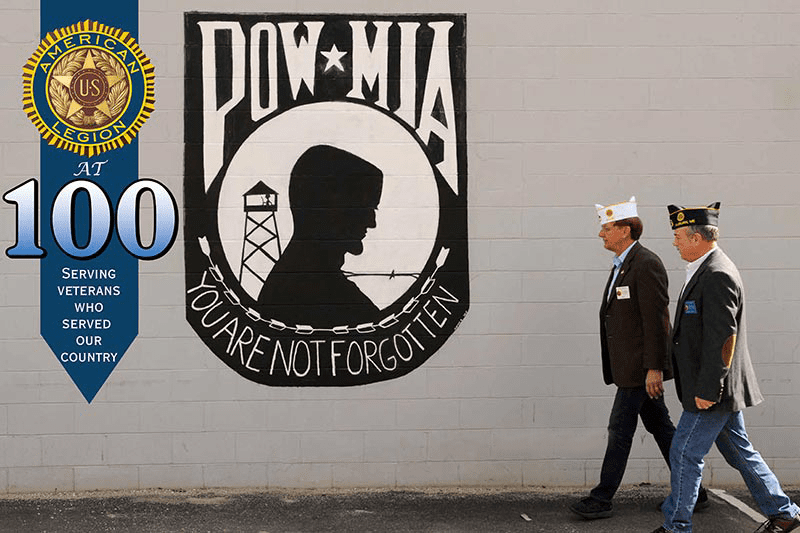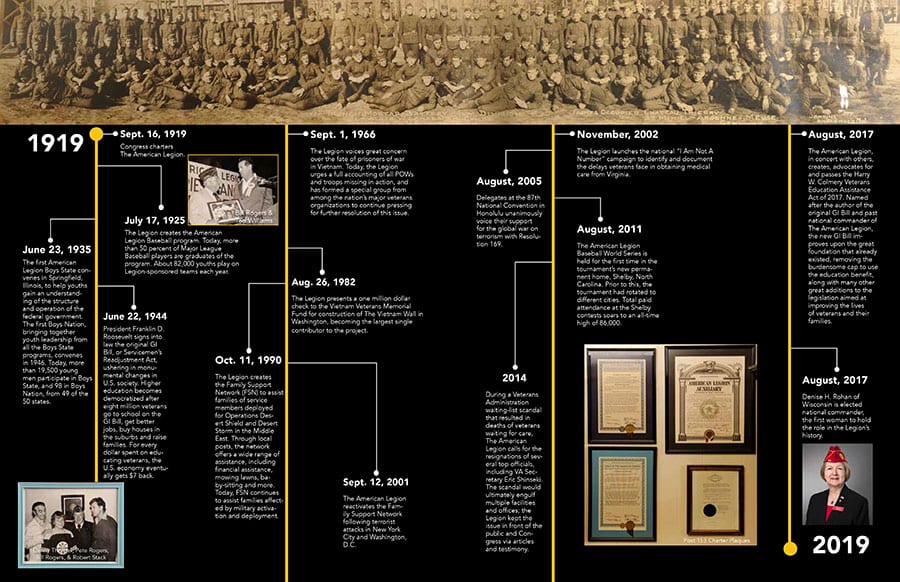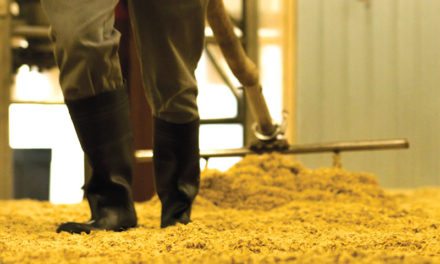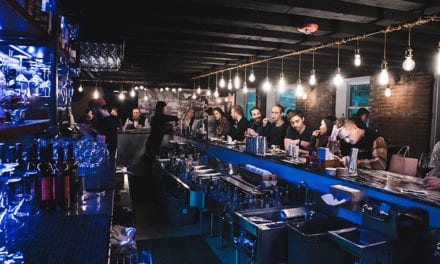Written by Dan Marois | photography by Jose Leiva
The members have served in different wars- World War II, Korean, Vietnam- and post-9/11 engagements in the Gulf War, Iraq, and Afghanistan. Though their backgrounds and experiences vary, they all share one common bond: they are part of the American Legion, the nation’s largest veterans service organization, celebrating its 100th anniversary this year.
If there is one word to describe members of the American Legion, it is pride; the sense of pride in being a veteran and pride in serving the community in which they live. Spend a bit of time with Steve Simard, post commander of William J. Rogers Post 153 in Auburn, and Jason Hall, post commander of Post 86 in Gray, and you’ll be inspired by their reverence for those who came before them, and their commitment to keeping the Legion vital today.
“Our job, quite simply, is to take care of veterans,” says Simard.
A key program for many Legion posts is financial assistance to veterans in need, whether it be for food or heating oil, to contributions for veterans facing unexpected life circumstances. Millions of dollars have been raised to support local, state, and national initiatives.
Simard is a retired Coast Guard veteran, with more than 20 years of active duty service, who joined the American Legion in 1993. “We are a close-knit family that works well together,” adds Simard, whose wife, Lori, is also a veteran of the Coast Guard.
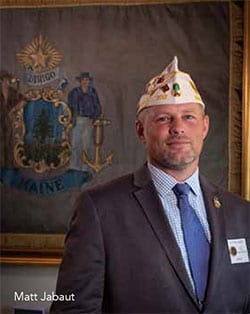 Hall served four years in the U.S. Air Force, took a few years off in Buffalo, New York, then served three years in the U.S. Army. Sixteen years later, after going to college and raising his kids, he joined the American Legion knowing that he had more time to commit to the organization and the community it serves. Now in Gray, Hall sees similar needs and programs to support.
Hall served four years in the U.S. Air Force, took a few years off in Buffalo, New York, then served three years in the U.S. Army. Sixteen years later, after going to college and raising his kids, he joined the American Legion knowing that he had more time to commit to the organization and the community it serves. Now in Gray, Hall sees similar needs and programs to support.
“Fifty-one percent of our members are Vietnam veterans,” says Hall, noting that this population did not share the welcome and adulation that other war veterans received after the conflicts ended. “It has been more difficult for them.”
Hall often sees these vets suffering from post-traumatic stress disorder (PTSD), a condition that many vets suffer after duty in war zones. “We specifically have training in how to handle PTSD, since it has become so prevalent. We reach out to these members and provide them services that can ease their battle with the condition.”
Hall notes that in the United States about 22 veterans take their own lives each day.
“It is definitely a problem.”
An array of services
Hundreds of local American Legion programs and activities strengthen the nation one community at a time. American Legion Baseball is one of the nation’s most successful amateur athletic programs, educating young people about the importance of sportsmanship, citizenship, and fitness.
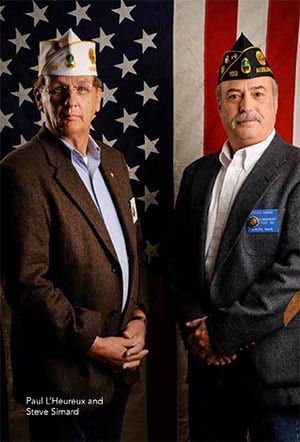
Many posts participate in Boys and Girls State, an opportunity for Maine high school juniors to supplement their high school courses in government and its functions. In this program, young men and women role-play as they learn to campaign for local, county, and state offices and then organize and carry out the functions of the state government.
“We are creating future leaders in this program,” says Paul L’Heureux, the state adjutant and only paid staff person of the Maine American Legion organization.
Simard’s post is proud to have assisted Oratorical & Odyssey of the Mind teams at Edward Little High School and Auburn Middle School that went to the national and world competitions, finishing in the top five.
Operation Comfort Warriors, an effort that supports recovering wounded soldiers and their families, provides veterans with the kind of support that makes a hospital feel a little bit more like home.
The Legion is also the chartering agency for more than 1,700 Boy Scout units made up of approximately 64,000 youths.
Each post commander cites one of their favorite efforts in recent years.
“On Memorial Day, we place flags on the gravesites of veterans in the area,” says Simard. “It shows our pride and respect for those who have sacrificed for their country.”
For Hall, it is the immediacy of many people coming together that inspires him in his legion work.
“One of our members was diagnosed with stage four cancer,” recalls Hall. The post and other community members came together to host a cornhole tournament. “While it might sound like a funny kind of event, it raised $18,000 in a single day.“
A treasured history
According to its website, the American Legion was chartered by Congress in 1919 as a patriotic organization with its national headquarters in Indianapolis, Indiana. Focusing on service to veterans, service members, and communities, the Legion evolved from a group of war-weary veterans of World War I into one of the most influential nonprofit groups in the United States.
Legionnaires’ sense of obligation to community, state, and nation drives an advocacy for veterans in Washington. The Legion stands behind the issues most important to the nation’s veteran community, backed by resolutions passed by volunteer leadership. The American Legion’s success depends entirely on active membership, participation, and volunteerism.
After its founding, membership swiftly grew to over one million, and local posts sprang up across the country. Today, membership stands at over two million in more than 14,500 posts worldwide. The posts are organized into 55 departments: one each for the 50 states, along with the District of Columbia, Puerto Rico, France, Mexico, and the Philippines.
Local legions
In Maine, according to L’Heureux, there are 177 legion posts with membership totaling 15,000.
“Each post is run independently and offers programs that best meet the needs of their community.”
The oldest of veterans, those who served in World War II, he says, are the most vulnerable of their members.
“WW II veterans totaled 16 million. There are about a half
million still living, with about 1,100 dying each day, many who
are well into their 90s. We have actively supported Honor
Flight, the program that brings these veterans to view their
monuments in Washington, DC,” adds L’Heureux. “And
we’ve often been the ones at the airport greeting them upon their return.”
“Every day, our veterans face challenges and help is always nearby from fellow veterans. People with helping hands make things happen,” says L’Heureux, a four-year veteran of the Navy, a 23-year veteran of the U.S. Army Reserves and a 40-year member of the American Legion.”
“Although I am the only paid staff member of the Maine American Legion, the work is done by many volunteers who put in countless hours in service to the organization,” L’Heureux says.
Making a difference
Matt Jabaut, a member of the American Legion Post 202 in Topsham, is from the post-9/11 generation of veterans. He’s younger than Simard, Hall, and L’Heureux, but equally as passionate about the work of the Legion.
“(The American Legion) sets the standard by being a ‘doing’ organization. It is making the change you really want to see at the local level,” says Jabaut, while visiting at the legion post in Auburn. “They are not just veterans, in name; they live the spirit of their commitment.”
He’s impressed that the American Legion strengthens their communities with volunteer service. He likes that every post is independent and not just a copy of any other.
“They strengthen their communities by identifying the local needs, and they set out to meet those needs,” says Jabaut.
Charting a course
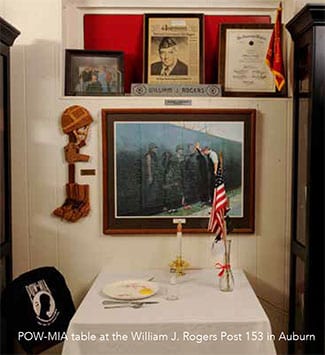 L’Heureux, who has the advantage of seeing the American Legion from the local, state and national perspectives, is an encyclopedia of information about the work of the American Legion.
L’Heureux, who has the advantage of seeing the American Legion from the local, state and national perspectives, is an encyclopedia of information about the work of the American Legion.
“The post here in Auburn was named after William Rogers, a World War II vet whose roommate was baseball legend Ted Williams. He was the first national commander of the American Legion who came from Maine,” notes L’Heureux.
“The Legion was the first to draft legislation that created the GI Bill, an education program that has benefited so many who served,” adds L’Heureux. “We’ve also been on the forefront of advocating for improved services for veterans through the Veterans Administration. We are always finding ways to serve our members.”
L’Heureux believes that a favorite slogan, often said at American Legion national conventions, best describes the organization.
“It is not what we’ve done, it is what we do.”

